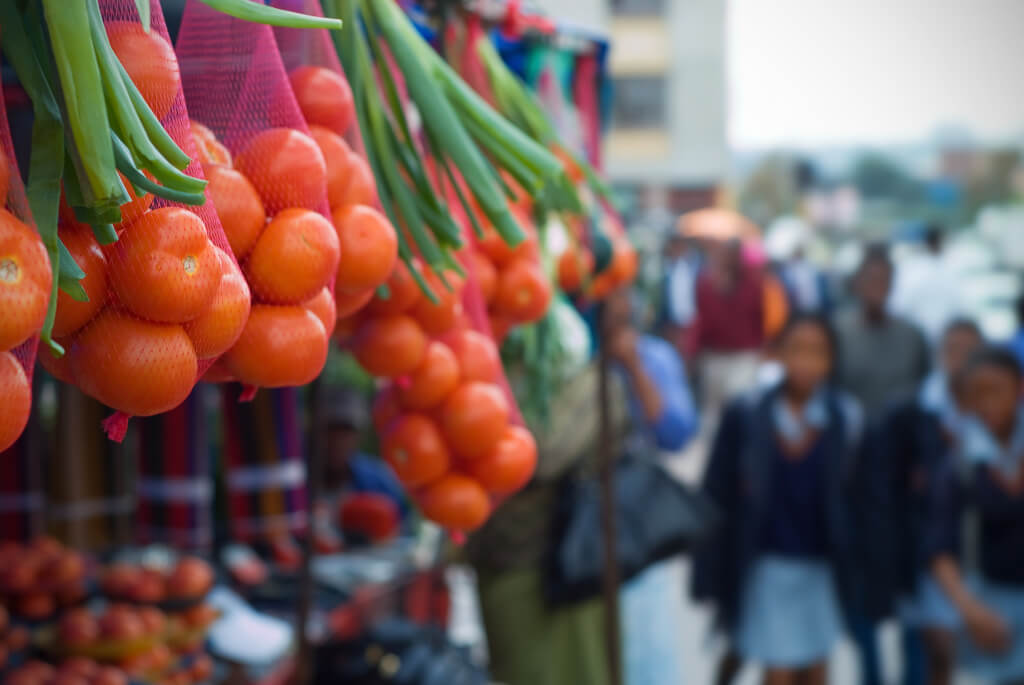In South Africa, the issue of “fake food” has become intertwined with xenophobic sentiments. Foreign nationals, many of whom own small shops, have faced accusations of selling counterfeit or expired food products. This controversy has escalated into episodes of xenophobic violence, clouding the real issues with layers of political sensitivity. It’s a topic rife with misinformation and opinion, rather than hard evidence, further complicating the matter.
“Fake food” is a term that encompasses various forms of counterfeiting in the food industry. Interestingly, not all counterfeit products are inherently harmful to consumers. People sometimes knowingly purchase these items due to lower prices or convenience. Among these, “diverted products” don’t pose health risks. These are items like factory overruns or promotional goods sold outside their intended retail environment.
More concerning are the imitations – products designed to mimic real brands but often made with inferior ingredients. There have been instances where food items are tampered with, either by adding non-food substances or by repackaging expired goods to extend their shelf life. A notable example involved allegations against a South African poultry company several years ago.
The true extent of food counterfeiting in South Africa is not fully understood. It pervades both formal and informal sectors of the food system, with a consensus that it’s on the rise. However, the real concern lies in distinguishing between the presence of counterfeit food and its impact on public health. It’s essential to remember that some of the most significant food-related health crises, like the listeriosis outbreak, were caused by legitimate, non-counterfeit food products.
In South Africa, there are clear legal guidelines for the sale of perishable and non-perishable food items. “Best before” dates, which indicate quality rather than safety, allow for the legal sale of foods past these dates. The problem arises when dates on packaging are altered, misleading consumers about the quality or safety of the food.
While the health risks of various forms of food counterfeiting can vary, financial implications for legitimate manufacturers are clear. The conservative nature of expiry dates often means that some foods remain safe past these dates, but there are risks involved, especially with perishables.
Incomplete Debate and Xenophobic Tendencies
The discourse surrounding “fake food” in South Africa has been marred by an oversimplification of a multifaceted problem. The tendency to point fingers at foreign shop owners and supposed “cartels” for the proliferation of counterfeit food products neglects the deeper, systemic issues at play. This simplistic narrative not only fails to address the root causes of the problem but also ignites xenophobic sentiments, leading to serious social and economic repercussions.
The xenophobic tendencies linked to the “fake food” debate have had tangible, harmful consequences. Government operations targeting shops owned by foreign nationals have frequently escalated into raids, resulting in the seizure of goods and closure of businesses. More alarmingly, this scapegoating has fueled instances of xenophobic violence, further marginalizing foreign nationals who are often merely seeking livelihoods in the local economy. Such actions not only disrupt the lives of these individuals but also strain community relations and social cohesion. To understand the issue of counterfeit food more comprehensively, it’s crucial to consider the broader factors contributing to its presence in the market:
- Global Supply Chain Complexities: The modern food supply chain is a global network, often lacking in transparency and consistency in standards. This complexity can lead to gaps where counterfeit products can enter the market unnoticed.
- Inadequate Enforcement of Trade Regulations: There’s a notable gap in the enforcement of existing trade and food safety regulations. This lax enforcement creates opportunities for the circulation of counterfeit products, often undetected by authorities until they reach the consumer.
- Consumer Demand for Affordable Options: Economic pressures and the resulting demand for low-priced food items play a significant role in the proliferation of counterfeit foods. In a bid to meet this demand, some suppliers might resort to dubious practices, including the sale of counterfeit or substandard products.
The Need for a Holistic Approach
A crucial element in combating the spread of counterfeit food is enhancing oversight across the entire supply chain. This involves:
- Implementing systems to track the journey of food products from production to sale. This can be achieved through technology like blockchain or advanced logistics tracking.
- Since food supply chains are global, international cooperation is key. Sharing information and best practices between countries can help identify and close loopholes that counterfeiters exploit.
- Conducting more frequent and thorough audits of suppliers and retailers. This should include both formal and informal sectors to ensure comprehensive coverage.
Strengthening Regulatory Frameworks
Enhancing existing laws and regulations concerning food safety and trade is essential. This includes:
- Ensuring that laws are up-to-date with current food industry practices and challenges. This may involve revising standards for food quality and safety.
- Strengthening the enforcement of these laws through increased funding and support for regulatory bodies like health departments and trade inspectors.
- Establishing clear and stringent consequences for businesses that knowingly sell counterfeit food. This should serve as a deterrent against such practices.
Addressing Economic Drivers
Understanding and addressing the economic factors that contribute to the demand for cheaper, potentially counterfeit products is crucial. This involves:
- Implementing policies and programs aimed at reducing poverty and improving the economic conditions of the population. This reduces the reliance on cheaper, potentially unsafe food options.
- Raising awareness among consumers about the risks associated with counterfeit foods and how to identify them. Educated consumers are less likely to purchase such products.
- Encouraging and facilitating the growth of local food producers can provide affordable, quality alternatives to imported or counterfeit products.
Promoting Inclusivity and Understanding
Counteracting the xenophobic narrative surrounding foreign shop owners requires a cultural shift. This includes:
- Community Engagement: Initiatives that foster dialogue and understanding between different community groups. This can be achieved through community meetings, educational programs, and collaborative projects.
- Media Responsibility: Encouraging responsible reporting in the media to avoid sensationalism and the spread of misinformation, which often fuels xenophobic attitudes.
- Legal Protection for Foreign Nationals: Ensuring that foreign nationals have the same legal protections as local citizens, particularly in trade and business operations.
- Collaborative Problem-Solving: Engaging various stakeholders, including government, business owners, consumers, and community leaders, in finding solutions. This collaborative approach can help in developing strategies that are sensitive to the needs of all parties involved.
Addressing the Issue
Merely targeting foreign traders won’t resolve the concerns around food safety and counterfeit foods. What’s needed is a multi-faceted approach, including:
- Gathering precise statistics on the prevalence and types of counterfeit foods is crucial.
- This includes strengthening border checks and empowering local health officials to inspect both formal and informal food vendors.
- Removing barriers to entry for smaller manufacturers is key to diversifying the market.
- Ultimately, addressing these underlying issues is vital, as they drive the demand for cheaper food alternatives.
The issue of counterfeit or “fake food” in South Africa is a complex problem that requires a multifaceted and holistic solution. Beyond the immediate need to address food safety concerns, there is a critical requirement to dismantle the xenophobic narratives and understand the broader socio-economic factors at play.
Strengthening the supply chain oversight, enhancing regulatory frameworks, addressing economic drivers like poverty and consumer education, and fostering a culture of inclusivity and understanding are key steps in this direction. These efforts should be collaborative, involving various stakeholders from government agencies to local communities, and mindful of the need to protect and integrate foreign nationals into the fabric of South African society.




